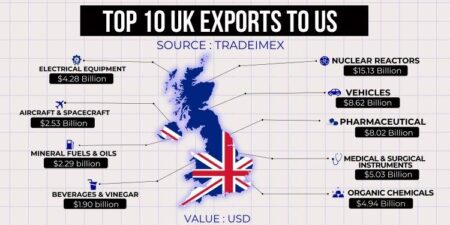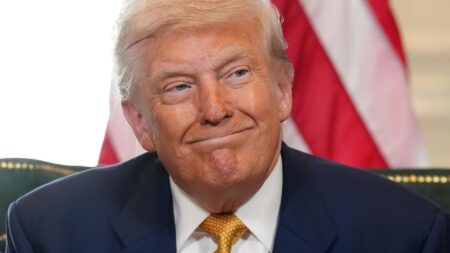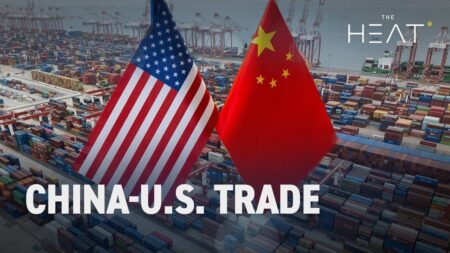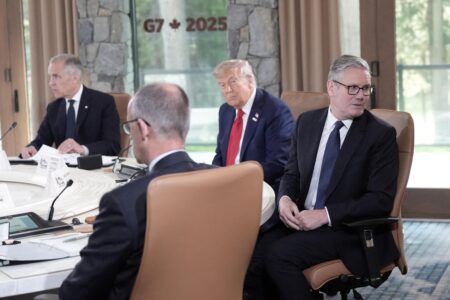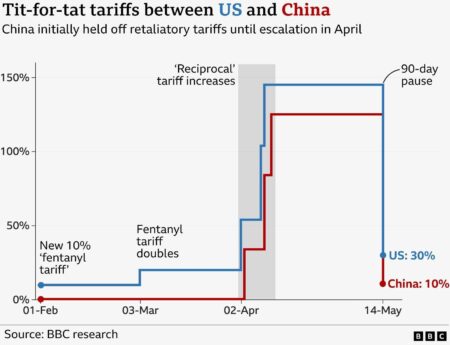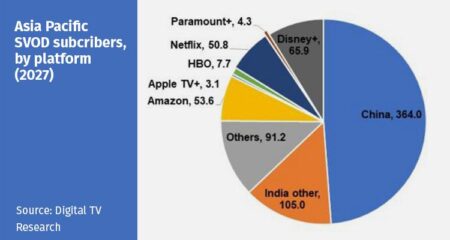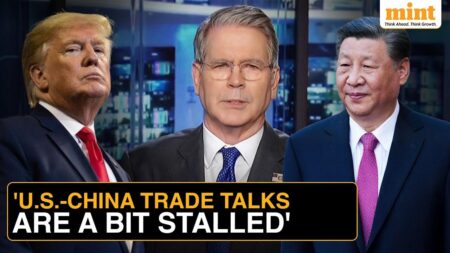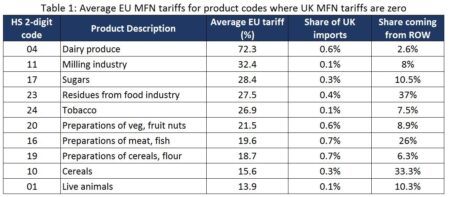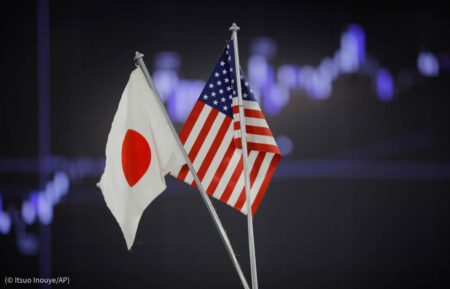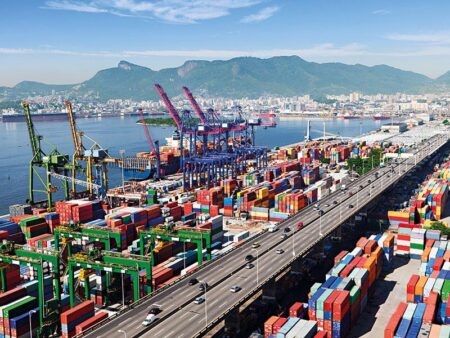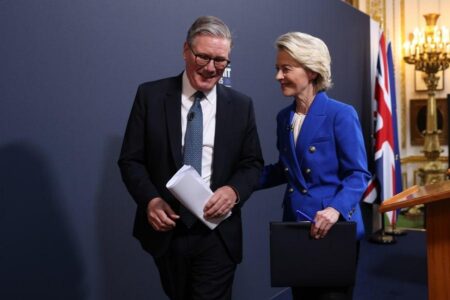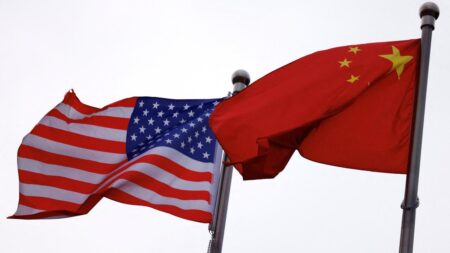Brazil eagerly looked to the U.S. for support in developing rare earth mining to meet soaring demand for these vital materials. However, escalating tariff tensions have cast a shadow over this partnership, slowing progress in strengthening supply chains essential for cutting-edge technologies
Browsing: economic relations
U.S.-UK trade relations are heating up as both nations eagerly explore fresh opportunities in the post-Brexit landscape. Congress.gov offers an inside look at the intense negotiations, tariff battles, and regulatory challenges driving the evolution of this crucial alliance
The White House has unveiled bold new plans to adjust reciprocal tariff rates, aiming to find the perfect balance between economic interests as trade talks with the People’s Republic of China move forward-paving the way for stronger bilateral cooperation
Japan has urged the US to dramatically cut auto tariffs and demanded transparent answers on other trade levies, Reuters reports. This bold stance highlights escalating tensions as both nations face crucial economic negotiations
Former President Trump is reportedly favoring China over India in trade policies, sparking a fiery debate about the future direction of U.S. economic strategy. Experts warn that this shift could dramatically alter long-term relations and shake up market dynamics, The Hill reports
The U.S. has raised alarms over Brazil’s popular payments platform Pix, highlighting significant trade and regulatory hurdles. This move shines a spotlight on escalating tensions in the fast-evolving realm of digital finance as global payment networks race to grow
The US and UK have launched an exciting new trade deal aimed at boosting economic ties like never before. However, steel imports continue to pose a significant challenge, with talks still in progress, officials say. More negotiations are expected soon
In the ongoing U.S.-China trade talks, Beijing masterfully balances boldness with diplomacy, aiming to secure favorable terms while carefully managing tensions. This strategic approach highlights China’s commitment to maintaining the delicate economic partnership without sparking disruption
US-China trade talks reignited on Monday, sparking fresh hopes for easing the ongoing tensions. After the first day, both sides expressed cautious optimism, even as significant disagreements over tariffs and technology transfers continue to cast a shadow
Asia-Pacific markets delivered a mixed bag of results as investors remained on edge, eagerly anticipating key updates from the high-stakes U.S.-China trade negotiations. Traders are intently focused on any clear signals about potential tariffs and groundbreaking agreements that could transform the landscape of global trade
The United States and China are gearing up to meet in London on Monday for pivotal trade talks, aiming to ease ongoing tensions and explore fresh opportunities for collaboration amid persistent economic disputes, Reuters reports
The UK is vigorously working to negotiate a rollback of the 10 percent tariffs introduced by the Trump administration, striving to ease trade tensions and safeguard vital British exports, sources reveal
US-sanctioned tankers have been spotted actively engaging in the booming crude oil trade between Russia and India. This intriguing development highlights the intricate web of global energy supply chains as geopolitical dynamics continue to evolve
Japan and the United States are set to draw from their previous foreign exchange agreement in their upcoming discussions, as revealed by Finance Minister Shunichi Kato. This strategic approach highlights a strong commitment to fostering currency stability and enhancing trade relations between the two nations
Brazil and China are embarking on exciting trade discussions focused on boosting sustainability. By harnessing their agricultural prowess and cutting-edge technological innovations, these two nations are poised to harmonize economic growth with environmental objectives, paving the way for a new era of global cooperation.
The EU and UK have forged a groundbreaking post-Brexit deal that tackles crucial topics like security cooperation, fishing rights, and energy trade. This agreement opens the door to a fresh chapter in their relationship, with the goal of strengthening collaboration in the face of ongoing challenges.
German companies are becoming more wary about pouring their resources into the U.S. market, pointing to escalating operational costs, intricate regulatory challenges, and a cloud of economic uncertainty. This trend highlights a deepening apprehension regarding the stability and reliability of the American business landscape.
China is making a bold move by committing billions in investments to Latin America and the Caribbean, all in a bid to strengthen its foothold in the region as competition with the United States intensifies. This ambitious initiative underscores China’s strategic vision to broaden its global influence and forge deeper connections across continents.
In an exciting development, China is poised to boost its investments in Brazil by a staggering $27 billion, as revealed by President Lula. This strategic initiative is designed to fortify economic connections and elevate collaboration in key areas such as infrastructure and energy, marking a significant step towards a dynamic partnership.
Australian beef exports are experiencing a remarkable surge, particularly in China and the United States, as they take advantage of ongoing trade tensions. This impressive growth highlights a savvy shift by Australian producers who are actively exploring new markets in response to global trade uncertainties.


